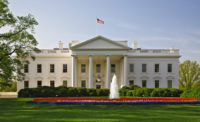While unions representing air traffic controllers and aviation safety inspectors are warning that the partial government shutdown is endangering the flying public, the Federal Aviation Administration – which is in partial function mode – is assuring the public that safety “is the top priority.”
In a terse statement the FAA said it is allocating resources based on risk assessment to meet all safety critical functions. “If we identify an issue, we recall inspectors and engineers to address it.” The agency added that air traffic controllers and the technicians “who maintain the nation’s airspace system continue to serve their critical mission.”
That’s at odds with statements from the Professional Aviation Safety Specialists, which represents safety inspectors - who are furloughed “Without a fully functioning F.A.A., a layer of safety is missing,” said Mike Perrone, the organization’s president.
According to the National Business Aviation Association, here is how travel- and transportation-related agencies are being impacted by the shutdown:
FAA
While critical FAA functions including air traffic control services, safety oversight and the FAA Registry are continuing to function, numerous activities at FAA are suspended.
FAA Registry
With passage of the FAA Reauthorization Act of 2018, the FAA Registry in Oklahoma City has been deemed essential and will remain open during a government shutdown. During a shutdown, the registry should be able to continue operating as normal. This means that most aircraft registrations, renewals and other critical registry functions will operate as normal.
However, the FAA Aeronautical Central Counsel office, which is involved in certain registry functions is subject to the government shutdown and not operating. This means that the office cannot give legal opinions on registrations involving non-citizen trusts or owner trusts. Also, FAA legal opinions on certain LLCs, corporations and other complex ownership structures are not available during the shutdown.
Additional FAA Functions Impacted by Shutdown
While numerous FAA functions have ceased during the shutdown, the following suspended activities are likely of most interest to NBAA members.
- Issuance of airmen certificates
- Issuance of ferry or special flight permits
- FAA knowledge tests (i.e. written exams)
- Renewal of training center evaluator/simulator qualifications
- Adding or modifying aircraft and personnel listed on OpSpecs of a commercial operator
- Other FSDO functions such as seeking new letters of authorization or modifying current authorizations
- Approval of exemptions for unmanned aerial systems operations
- Aviation rulemaking
- Development, operational testing, and evaluation of NextGen technologies
Customs and Border Protection (CBP)
CBP is affected only with overtime arrivals, much like what happened with sequestration. Operators should communicate directly with their port of entry to clarify any local port impacts on proposed arrival times, especially if the operation proposes to arrive after normal business hours.
NBAA has received reports that shipments of CBP User Fee decals are delayed during the shutdown. CBP has advised that operators who have not yet received a decal can verify their compliance by producing:
- an electronic or printed order history (available to the operator immediately after application is made)
- or an electronic or printed order receipt (available after the order has been processed by DTOPS).
The Department of Homeland Security has also canceled interviews for travelers trying to enroll in the Global Entry program.
Transportation Security Administration (TSA)
TSA is working normal business hours. This includes administrative functions needed to support TSA waiver applications and approval process that support foreign registered aircraft and the DCA Access Standard Security Program (DASSP). Additionally, the coordination needed with FAA for DCA slots remain operational.
Department of Transportation (DOT)
The DOT will suspend all non-essential legal functions related to acquisitions, aviation licensing, regulatory policies, and FOIA, including:
- Notices of Consistency
- US Air Carrier Frequency Allocations
- US Air Carrier Charter Allocations
- US Carrier International Route Authority
- DOT Part 375 Exemptions
- Foreign Air Carrier Exemptions


